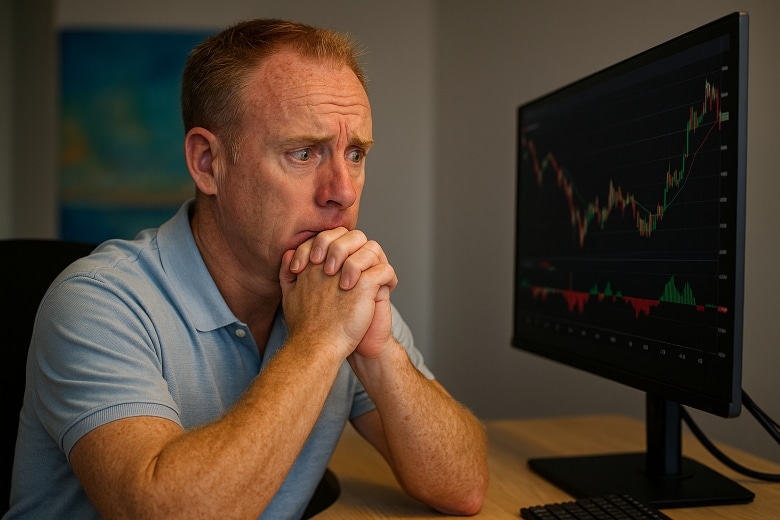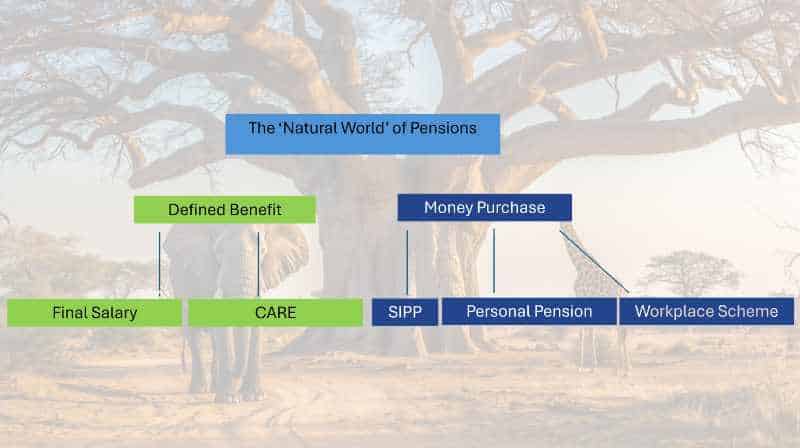
My wife and I have been lucky in many ways. We were born in a democratic country during an era of peace, to middle-class parents who loved and supported us, and who were able to send us to university the year before tuition fees began, enabling us to graduate without crippling debt. But that’s not the sort of luck I want to talk about in this article.
You Can’t Always Make Your Own Luck
We have been fortunate with timing as well; we bought our first flat in South West London in 2006. A year later, thanks to a booming housing market, we were able to sell for a sizable profit and move to a cottage in a village just outside Guildford. This was the home that we brought our son home to when he was born. It was also the home we lived in when the Great Financial Crisis rocked the global economy and led to extremely low mortgage interest rates that lasted for nearly fifteen years.
The Baby Boomers are the generation that benefited from the housing boom, buying houses at relatively low prices while watching their equity value soar. They have also been beneficiaries of defined benefit pension schemes, which many in today’s workforce dream of. However, for many of my generation, those in their forties and fifties, the ultra-low interest rates have enabled us to afford larger homes with larger mortgages and have disposable income for foreign travel.
In 2016, Carol and I decided to relocate to Devon. Again, thanks to the low-interest-rate environment, we were able to buy our ‘forever home’ in a bucolic village near the sea. It also meant I was able to leave the employed world to set up this business, allowing us to live on a single income with our son and daughter, who was soon to join us.
Of course, our hard work, endeavour, and some parental support have enabled this to happen, but had the Great Financial Crash not occurred and mortgage rates stayed at the 5-6% they were when we bought our first home, our alternative history would have been very different. I’m sure, not dire, but it’s unlikely to have been as fortunate as we have been.
Emotional Decision Making
Fast forward to 2025, and I have found myself reacting emotionally to investment decisions that I aim to counsel my own clients against. I do practice what I preach; since we started our first mortgage in 2006, we have regularly saved into Share ISAs so that we have the capital to repay the mortgage when it is due. Later this year, the current mortgage deal will expire, and like many who have enjoyed low interest rates, we face the prospect of much higher costs affecting our monthly disposable income.
So, it was with a great deal of angst that I watched the value of our investments fall when Donald Trump announced his tariff plans. In a matter of days, our investments fell by over 10%, with no certainty that this was the end of the sell-off, and knowing our mortgage term was set to end in just six months.
As we were out for a walk with the kids on Easter Monday, we considered our options: sell and take a hit, which would allow us to pay off some of our mortgage but face larger monthly payments on a bigger residual debt. Or, ride it out and hope for a recovery in time, but with the risk that the losses would increase.
The third option would be to leave the money invested over the long term and reasonably expect investment returns to be greater than the mortgage rates; however, our monthly cash flow would be lower, which has implications for the lifestyle we currently enjoy.
Carol asked what I would advise my clients. I explained that in the short term, you don’t take investment risk with money you can’t afford to lose. That, in the short term the downside risk tends to be greater than the upside opportunity; markets tend to fall like lifts and rise like escalators. That we tend to feel losses more than we do gains.
We concluded that it was, therefore, probably better to accept the losses experienced over the past few weeks and incur higher mortgage costs for longer. Still, at least we’d be able to take a sizeable chunk off it, even if it was not as much as we wanted.
24 Hours Later
I was ready to make the sales in our ISAs, except the following day was different; the markets picked up. Trump, upon seeing the turmoil the tariff announcements had caused in the US stock markets, but more importantly, in US Government Bond yields, became conciliatory. He announced the 90-day pause and initiated negotiations, and the markets responded optimistically.
Now, we were faced with a dilemma: should we fold or hold? If we wait and the markets recover, we can reduce our debt by more and increase our disposable income when we move to a new mortgage rate. But what if the recovery is temporary?
In the end, we held out, but it has led me to a behaviour I encourage my clients not to do: watching the markets each day, waiting and hoping for the recovery to continue. Celebrating the days when the markets are up and doubting myself when they are down.
Iran: A Classic Example of Unexpected Events
As I have explained in this article, markets hate uncertainty. They’ve certainly had a lot of that to process over the past 5 years, and we had a microcosm of it last month with the Israel-Iran conflict. The threat of a nuclear war led the markets to further sudden losses. Which, again, doesn’t help when making investment decisions.
Cue another discussion with Carol, only for the decision to sell to be deferred by the positive market response to Trump’s decision to bomb Iran’s nuclear facilities and Iran’s diplomatic response.
Bringing You Up to Date
As I write this, our investments have largely recovered to their pre-Liberation Day levels. We could hold out until they reach their highest level and perhaps even go higher, but we’ve decided now is the time to get off the ride. They say you should leave some profit for the next person, so that is what we are doing. I have instructed our ISA manager to sell our holdings.
I said I’d be more annoyed if the value got worse, but I’d be sanguine if we sold and then watched from the sidelines as they recovered. In hindsight, I’d have been frustrated had we sold after Easter before the recovery.
Will I feel frustrated if the markets continue their upward trend until our mortgage deal expires? Possibly, but I also feel relieved that we have been able to recoup our losses, more by luck than good judgment, and certainly not through any professional intuition that could predict what markets will do next. Don’t believe anyone who tells you they know!
I Didn’t Even Look at My Pension
Here’s an interesting side point: throughout this period, I didn’t even look at how my pension was performing because I didn’t care. I do know that in the long-term markets provide positive returns, so the short-term performance of an asset that I can’t access for another 10 years is irrelevant to me. I know that investment uncertainty is a fundamental feature of the markets. Still, I also know that I’m human and am liable to the same emotions and behavioural biases as anyone else.
Final Thoughts
This episode has proven to be an interesting experience for me, personally and professionally. Personally, I’ve become aware of my reactions and biases. Professionally, I’m more attuned to how clients respond when faced with financial decisions that will impact their lives.
It also enlightened me to the realisation that we have been lucky to live through a period of ultra-low interest rates that enabled Carol and me to get to this point in the first place.






